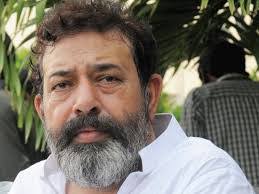Nelson Mandela: The Fight for Freedom and Equality

Introduction
Nelson Mandela remains a symbol of resistance, hope, and courage in the face of injustice. His tireless fight against apartheid and advocacy for peace and reconciliation has made him an enduring figure in global history. Even decades after his passing in 2013, Mandela’s influence persists, reminding us of the ongoing struggles for freedom and human rights around the world.
Life and Early Years
Born on July 18, 1918, in Mvezo, South Africa, Mandela was the son of a tribal chief. He studied law at the University of Fort Hare and later became involved in activism against racial discrimination. In 1944, he joined the African National Congress (ANC), which would become pivotal in his life as he worked against the apartheid regime that institutionalized racial segregation and oppression in South Africa.
Imprisonment and Activism
In 1962, Mandela was arrested and later sentenced to life imprisonment for conspiracy to overthrow the apartheid government. Spending 27 years behind bars, he became the face of the anti-apartheid movement globally. His imprisonment drew international attention and calls for his release, as he became a symbol of the struggle against oppression.
Release and Presidency
Nelson Mandela was released in 1990, and his return to society marked the beginning of significant political change in South Africa. He played a crucial role in negotiations to dismantle the apartheid regime, culminating in the country’s first multiracial elections in 1994. Mandela became South Africa’s first black president, advocating for national reconciliation and unity, emphasizing that healing was essential for the nation to move forward.
Legacy and Global Influence
Mandela’s legacy extends far beyond South Africa. His commitment to peace, equality, and human rights has influenced numerous movements worldwide. Organizations and leaders continue to draw inspiration from his life, with schools and institutions named in his honor. His annual celebration on July 18, known as Mandela Day, promotes global activism and community service, advocating for social justice and human rights.
Conclusion
Nelson Mandela’s life is a reminder of the power of resilience and the importance of standing up against injustice. His work and ideals continue to resonate, urging us to fight for a better world where freedom, equality, and peace prevail. As society confronts ongoing issues of racism and inequality, Mandela’s teachings and legacy are more relevant than ever, inspiring future generations to continue the struggle for rights and dignity for all.









